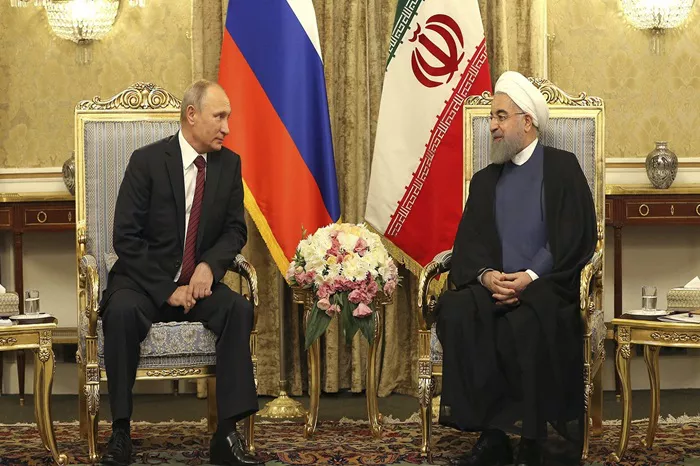Russian energy behemoth Gazprom and the Iranian National Gas Company (NIGC) inked a landmark memorandum of understanding (MoU), heralded by Iran’s Petroleum Minister, Javad Owji, as a transformative event for the region’s energy landscape. This agreement, aimed at facilitating direct gas transfers from Russia to Iran, signifies a significant step towards solidifying their role as pivotal players in a prospective global gas cartel akin to OPEC for oil.
The MoU builds upon the foundation laid by the Gulf Exporting Countries Forum (GECF), which evolved from a loose alliance into a formal organization in 2008, headquartered in Doha, Qatar. Comprising core members Russia, Iran, and Qatar, alongside eleven other nations, the GECF collectively controls a substantial portion of the world’s gas reserves and production, with Russia leading globally followed closely by Iran.
The strategic alliance between Russia and Iran, evidenced by recent agreements including the 2022 Gazprom-NIOC MoU, aims to bolster their influence in global gas markets, particularly through land-based pipelines and liquefied natural gas (LNG) shipments. This collaboration is underscored by joint projects such as the development of major gas fields like Kish and North Pars, alongside initiatives to enhance LNG capabilities and expand export pipelines.
The geopolitical implications are profound, as highlighted by Iran’s offer to establish an energy corridor linking Russia to the Persian Gulf, complemented by Turkey’s expressed interest in increased energy trade with Iran. This corridor could potentially bypass existing international sanctions, facilitating energy flows into southern and eastern Europe via Turkey and Iraq, aligning with China’s expansive Belt and Road Initiative (BRI).
Moreover, these developments could enhance regional stability or escalate tensions, impacting Middle Eastern dynamics and international security frameworks. The evolving network of transport corridors underscores broader strategic alignments, potentially reshaping global energy dynamics amid shifting geopolitical currents.
In conclusion, the Gazprom-NIGC MoU marks a pivotal moment in the energy strategies of Russia and Iran, with far-reaching implications for global energy security and geopolitical alliances. As both nations navigate these transformative agreements, the future landscape of global gas markets hangs in the balance.
Related topics:
OPEC Boosts Oil Output Despite Cuts; Prices Near Two-Month High
OPEC Forecasts Doubling Of World Economy By 2045, Emphasizes Oil Role
OPEC Secretary General Raises Concerns Over Critical Minerals’ Role

